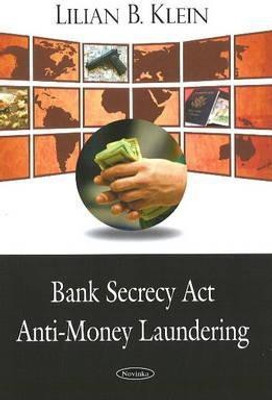Bank Secrecy Act / Anti-Money Laundering(English, Paperback, Klein Lilian B)
Quick Overview
Product Price Comparison
The Currency and Foreign Transactions Reporting Act, also known as the Bank Secrecy Act (BSA), and its implementing regulation, 31 CFR 103, is a tool the U.S. government uses to fight drug trafficking, money laundering, and other crimes. Congress enacted the BSA to prevent banks and other financial service providers from being used as intermediaries for, or to hide the transfer or deposit of money derived from, criminal activity. The Office of the Comptroller of the Currency (OCC) monitors national bank compliance with the BSA and 31 CFR 103. Since its passage, Congress has amended the BSA a number of times to enhance law enforcement effectiveness. The Anti-Drug Abuse Act of 1986, which included the Money Laundering Control Act of 1986 (MLCA), strengthened the government's ability to fight money laundering by making it a criminal activity. The Money Laundering Suppression Act of 1994 (Title IV of the Riegle-Neal Community Development and Regulatory Improvement Act of 1994) required regulators to develop enhanced examination procedures and increase examiner training to improve the identification of money laundering schemes in financial institutions.


